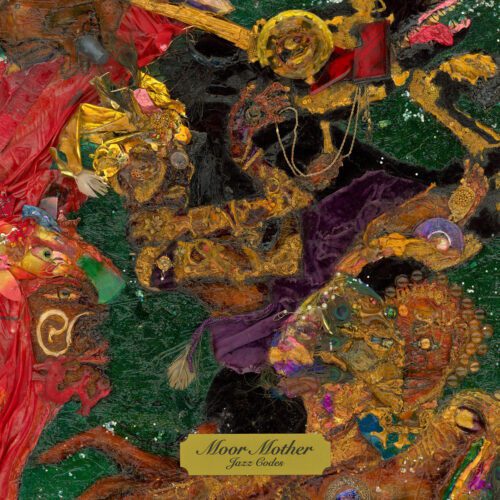Operating under the alias of Moor Mother, Camae Ayewa has since the 2010s been producing a prolific body of work as a poet, scholar, musician, artist, and activist. Her latest offering, Jazz Codes, is a kaleidoscopic and comprehensive musical document that speaks to the genius of black artistry in both the 20th and 21st century.
As a companion album to her 2021 release, Black Encyclopedia of the Air, which marked one of her more elaborate works to date, Moor Mother continues in expounding upon her distinct Afrofuturist aesthetic, what she calls ‘Black Quantum Futurism’. It is evident then that Jazz Codes is a means to an end, something of an anthropological undertaking for Moor Mother, who offers us a chance to rethink the past, the present, and the future through the vehicle of black music.
While this is a cerebral and cryptic album, one that rewards repeated listening, it is still accessible enough. Certainly, at first listen, Jazz Codes can play out something like a fever dream. Olof Meander’s production is airy and dense, without much earth on which to tread, and Moor Mother’s gentle but firm slam poetry style guides the listener through a sprawling collection of titles against the backdrop of sampled textures featuring spiritual saxophone runs, lush harp passages, droning trumpet lines, and intimate voice memos.
As genre-defying as Moor Mother’s work is, it is thoroughly grounded in the continuum of black music, and in drawing from the wellsprings of her musical ancestry she has created a veritable tapestry of R&B, hip-hop, folk, blues, and of course, jazz. As if to make reference to communal aspects of this lineage, there are a dizzying amount of collaborators involved in this project, and they have contributed to yet another masterwork of experimental and conscious hip-hop in Moor Mother’s oeuvre.
























